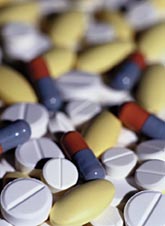The half-life of a drug refers to the length of time that it takes for one half of the drug to metabolize through the body. While the half-life of amphetamine may differ based on human consumption, the length of time that a user has been taking the drug and various other components, the average half-life of amphetamine is 12 hours.
This means that it takes about 12 hours for one half of a dose of amphetamine to metabolize through the body. The remaining dose will take about double that amount of time to metabolize based on medical studies.
Instances that Increase Half-Life of Amphetamine
The length of time that a user has been taking a drug that has amphetamine in it can have an impact on how long it takes the body to metabolize the drug. In some cases, prolonged or repeated use of drugs containing amphetamine such as Adderall can cause the half-life to extend to a period of up to 24 hours or more. This essentially doubles the actual half-life of the drug.
Other factors that increase half-life including liver or kidney problems that cause a slowed metabolism. People who suffer from liver disease, kidney disease or similar conditions may metabolize drugs more slowly than those with a healthy internal system. The half-life of amphetamine can increase with higher doses.
Taking more than 60 mg of amphetamine in a day will not only increase the half-life but can also lead to organ damage and the potential for overdose. Amphetamine overdose has serious repercussions which can include coma, permanent psychosis and even death.
If you suspect that someone you know has taken a lethal or potentially lethal dose of an amphetamine call 911 immediately for emergency medical care. If amphetamine addiction is a problem in your life, call our helpline at 800-820-1143 (Who Answers?) to talk to a counselor who can provide you with a free referral to treatment.

